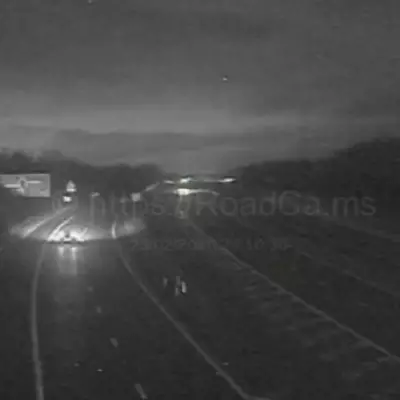
Rail passengers in Britain could soon bid farewell to frustratingly slow internet connections during their journeys, as a groundbreaking new WiFi system begins testing on Great Western Railway services.
F1 Technology Powers Railway Revolution
A two-month trial has commenced on one GWR intercity express train, featuring innovative technology originally developed for Formula One racing. The advanced system seamlessly switches between 5G mast signals and low-earth orbit satellites to deliver remarkably fast and reliable internet access.
During a test run from London Paddington to Newbury and back, the technology demonstrated impressive performance. Journalists found the connection robust enough to simultaneously conduct video calls with editors, stream old Match of the Day episodes on iPlayer, and listen to music on YouTube, experiencing only occasional minor interruptions.
Download speeds achieved an remarkable 120 megabytes per second, surpassing the broadband performance in many British households.
Government Backing and Future Expansion
Rail Minister Peter Hendy announced at Paddington station that passenger experience remains the government's priority. He stated: "21st-century experience ought to be seamless fast wifi which will make the time spent travelling by train even more valuable."
The trial complements significant government investment in improving mobile connectivity, with £41 million allocated for train WiFi and low-orbit satellite connections in June's spending review. The Department for Transport is additionally funding work to eliminate mobile signal black spots in rail tunnels and upgrading 5G infrastructure at stations along GWR routes.
Lord Hendy confirmed that the new state-owned Great British Railways would aim to implement fast WiFi across the entire network, though he emphasised that the speed and cost of rollout remain crucial factors. He highlighted the potential for "a real productivity benefit for the whole country, hopefully at a modest cost."
How the Revolutionary System Works
Nick Fry, chair of technology firm Motion Applied (spun out of McLaren's racing division), explained that the British-developed technology uses "several pizza-sized boxes" and roof-mounted antennae. This setup enables trains to connect and automatically switch between the best available network - whether WiFi, 5G, or satellite.
"It's very fast with fewer dropouts," Fry noted, adding that they "look forward to providing rail passengers with the same service we provide for Lando Norris and Lewis Hamilton."
The same technology is already being implemented on Deutsche Bahn services in Germany and Brightline and Amtrak trains in the United States.
Part of the current trial involves monitoring passenger behaviour to determine how much satellite data would be required if free, fast WiFi became available for streaming content.
The £300,000 trial cost is being funded by Peninsula Transport, a body representing Devon, Cornwall, Plymouth, Somerset, and Torbay. Better connectivity is seen as vital investment for regions where mobile coverage remains inconsistent.
Business leaders have welcomed the initiative. Andy Jasper, chief executive of Cornwall's Eden Project, described GWR trains as his "travelling office" and noted that reliable WiFi "turns the journey into a prime opportunity to get things done."
While only one of GWR's 57 intercity trains currently features this enhanced connectivity, a successful trial could lead to wider implementation across mainline railways by 2030, potentially ending the era of unreliable train internet that has plagued British passengers for years.






